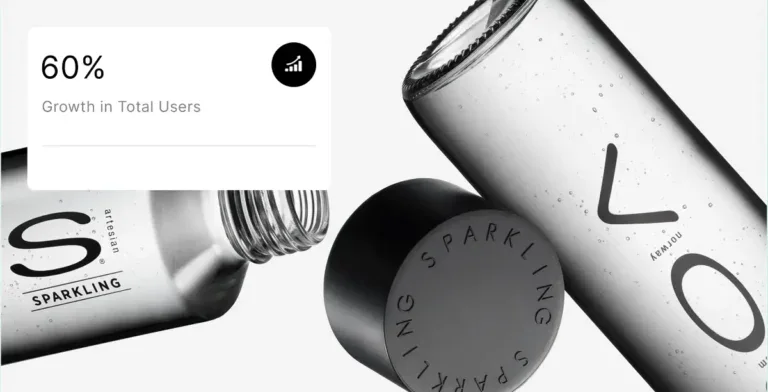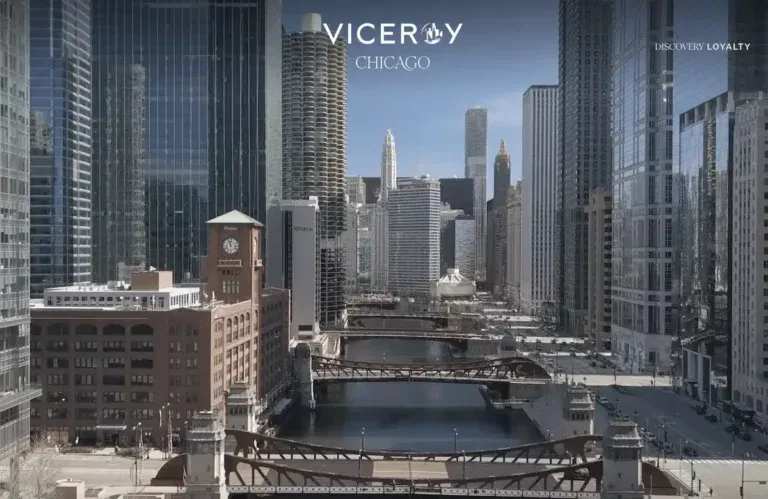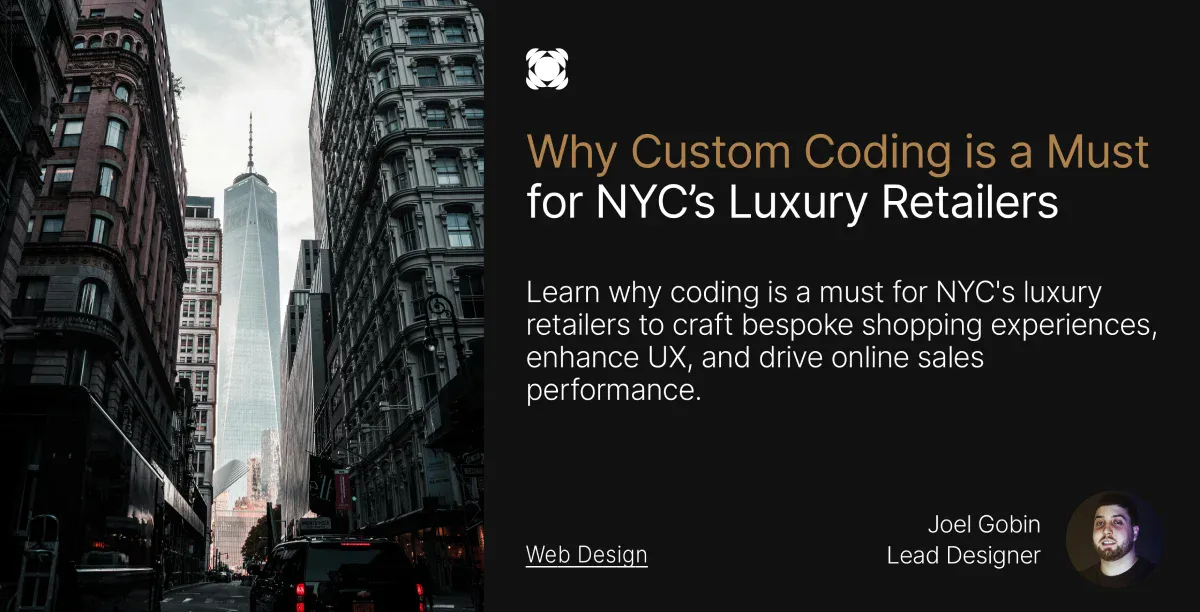94% of first impressions are mainly design-related.
Most, if not all, visitors will form an opinion of your brand and website before even looking at your products or services.

Elite customers expect excellence at every interaction point. Studies reveal that 88% of consumers leave websites that offer poor user experiences. No luxury brand can risk such losses.
The luxury goods market will likely hit $66.21 billion by 2026. Many NYC retailers still use generic platforms that fail to give their customers the exclusivity they need.
Expert coding lets NYC luxury retailers offer personalized shopping experiences using AI and big data. This strategy goes beyond aesthetics. It builds digital spaces that showcase brand exclusivity while delivering the exceptional performance that selective customers expect.
Trying to build a new website but don’t know where to start? Let us help.
Why Generic Platforms Fall Short for Luxury Retail
Generic eCommerce platforms work well for mainstream retail but create major drawbacks for luxury brands in NYC.
Brand value and customer experiences drop when mass-market platforms clash with luxury expectations.
Lack of personalization in template-based systems
Template-based systems directly clash with luxury shopping principles. High-end retail sees personalization as its key draw.
In contrast, generic platforms find it hard to offer that same level of service. AI-powered tools and algorithms cannot replicate the human touch found in physical boutiques.
Exclusivity makes luxury retail special, but standardized interfaces dilute this quality. Subtle design nuances that communicate premium values are missing from generic solutions.
Brands find it nearly impossible to differentiate themselves meaningfully through standardized templates.
Luxury retailers end up with digital experiences that feel transactional rather than aspirational when using generic platforms. Price comparisons among brands help shoppers, but they take away the storytelling in luxury marketing.
Premium goods become commodities when price transparency rises, which luxury brands must avoid.
Inflexibility in integrating VIP services
High-end retailers thrive by offering exceptional service to their most valued customers. Generic platforms fail to support sophisticated VIP programs effectively.
Integrating exclusive membership perks and tiered customer experiences is crucial. Without this, luxury retail weakens at its core.
Generic platforms include standard checkout processes and customer experience maps that weren’t built for white-glove service. This creates a gap between in-store and online experiences. Luxury brands suffer especially when customers expect consistency at every touchpoint.
These platforms lack the flexibility to implement custom services that build stronger customer relationships. Luxury brands now invest a lot in immersive experiences, virtual reality, and unique events. This enhances the shopping experience. Generic platforms simply cannot keep up with these state-of-the-art features.
Security and performance limitations
Luxury transactions demand strong security measures. This is crucial because they involve higher values and sensitive customer data. Standard security protocols from generic platforms often fail to protect valuable customer information.
They may also not meet the specific compliance needs of luxury retail.
Slow load times, poor functionality, and non-responsive designs can hurt a luxury brand’s reputation badly. Pages taking more than two seconds to load drive away potential customers. Each second of delay reduces conversions dramatically.
Luxury eCommerce requires more than what generic platforms typically offer. Strong, custom-built systems handle seasonal traffic surges better than one-size-fits-all solutions.
They also maintain global performance standards and deliver flawless experiences across devices.
Multi-brand platforms create additional conflicts with luxury strategy. Promotion-driven customer attraction undermines pricing control and exclusivity for luxury brands. Many brands keep their best-selling products for their own channels. Multi-brand retailers now have less desirable inventory.
This is a big problem for NYC retailers in the tough luxury market.
NYC retailers can address these limitations through custom coding. This approach builds custom digital spaces.
They fit each brand’s unique identity and business needs.
Core Benefits of Custom Coding for NYC Luxury Brands
NYC luxury brands that focus on custom development gain key advantages over those using off-the-shelf solutions.
Systems that match business requirements create a foundation for exceptional customer experiences and operational excellence.
Tailored omnichannel experiences across web and store
Custom coding helps NYC luxury retailers connect their physical boutiques with digital storefronts.
Unlike standard platforms, custom solutions create unified shopping experiences that flow between channels.
Luxury clients expect the same quality whether they walk on Fifth Avenue or shop from their smartphones.
Custom development connects physical and digital touchpoints smoothly. Gucci leads this approach with client service centers where staff members talk to online shoppers just like they would in stores.
Burberry shows another example of excellence through custom coding. Their staff uses iPads with custom software that shows customer profiles instantly. They can suggest items based on previous purchases, tastes, size, and fit.
Generic platforms cannot provide this level of service integration.

The benefits are clear. Research shows that marketers who use three or more channels in an integrated campaign earn a 494% higher order rate than those who stick to single channels.
Custom coding helps luxury brands combine these channels smoothly.
Custom CRM and POS integration for elite service
NYC’s luxury retailers serve selective clients who expect exceptional treatment.
A custom integration connects point-of-sale systems with customer relationship management software. It shows every customer’s interactions.
This integration helps retailers use customer sales data. They can learn about customer priorities and buying patterns.
Luxury brands quickly identify VIP customers. This happens whether they visit the flagship store on Madison Avenue or browse the website from overseas.
Benefits go beyond recognition. Custom CRM-POS integration makes loyalty programs easier to manage. Brands can reward repeat customers with experiences beyond simple discounts. Louis Vuitton shows this approach well; customers can book virtual and in-store appointments online quickly.
On top of that, inventory updates happen automatically with each sale.
Sales associates see product availability across all locations in real time. Michael Kors uses these solutions to offer guaranteed delivery options and two-hour in-store pickup for premium customers.
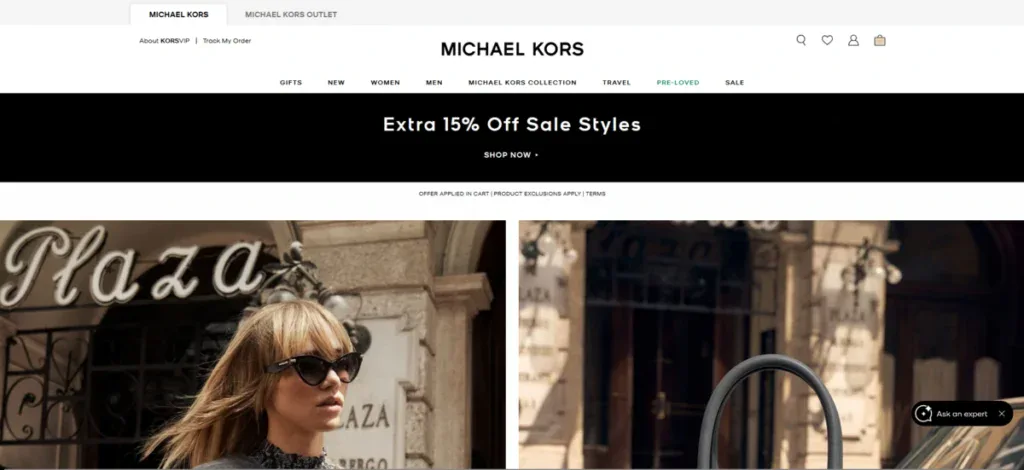
Explore how we improved Vertx’s engagement time by 58% with a website redesign in our latest case study.
Scalable architecture for seasonal and event-based traffic
NYC luxury retail sees big traffic changes during fashion weeks, holidays, and special events. Custom coding creates infrastructure that adapts to these changing needs.
Microservices architecture splits applications into smaller, independent services that communicate through APIs. Payment processing or inventory management can scale independently during busy times.
When luxury retailers drop limited-edition collections, the system quickly handles sudden jumps in transactions without lag.
Auto-scaling systems watch traffic and adjust resources in real time. Websites stay up during flash sales or promotional events.
Cloud-native infrastructure supports this flexibility with unlimited server capacity available instantly. Retailers don’t need costly extra capacity all year. They can still deliver great performance during busy times.
Custom development allows predictive scaling based on past patterns. The system increases capacity before predicted traffic surges. This preparation ensures that digital infrastructure is ready for every big moment.
Technical Foundations of Custom Development
Technical architecture is key to how luxury eCommerce platforms provide great experiences. NYC retailers need solid foundations.
This helps them build unique digital spaces that showcase their brand values.
Microservices vs monolithic architecture in retail
The way luxury retail platforms evolve depends heavily on their architectural choices.
Monolithic applications work as single unified units with all code in one central location. This traditional way looks easy to start with, but it gets tricky as luxury brands grow their digital services.
Netflix showed what’s possible when it changed from a monolith to microservices. This switch lets it deploy code thousands of times daily, with each microservice handling specific platform functions.
Luxury retailers can also use microservices. This helps them create independent, specialized parts that handle various aspects of the shopping experience.
Microservices shine because different teams can work on features simultaneously.
This way, they don’t disrupt the entire system. NYC luxury retailers can quickly launch seasonal collections or exclusive items.
This helps their core business run smoothly.
DevOps and CI/CD pipelines for faster iteration
Luxury retail needs both speed and precision. DevOps practices and CI/CD pipelines help deliver reliable updates quickly. They ensure stability isn’t compromised.
CI/CD pipelines automatically confirm security and performance before deployment, which reduces the risk of problems affecting high-value customers.
This matters because even a one-second delay on a website can cut conversions by 20%, which is especially important for luxury products with higher price points.
These pipelines support updates without any downtime, so shopping experiences stay uninterrupted. CI/CD also makes it easier to roll out features gradually.
NYC luxury retailers can test new experiences with select customer groups first.
Cloud-native infrastructure for global reach
NYC luxury brands need to serve customers worldwide, which requires responsive infrastructure everywhere. Cloud-native technologies create consistent experiences regardless of the customers’ locations.
A luxury retailer shifted its point-of-sale system to the cloud. They now enjoy uninterrupted service with zero downtime, making it easy to scale.
This change helped it handle different transaction loads efficiently, which is essential during fashion weeks or holiday seasons.
Cloud infrastructure protects against data loss through automated backups and snapshots.
Advanced monitoring alerts retailers to potential issues before customers see any problems. This helps maintain the perfect experience that luxury shoppers expect.
Elevating Customer Experience Through Custom Features
Custom-coded features help luxury retailers create exceptional shopping experiences that generic platforms cannot match. These tailored solutions enable NYC brands to build stronger connections with their elite clientele.
AI-powered personal shopping assistants
Digital concierges come to life through custom-coded AI shopping assistants. Gucci has implemented AR features in their apps that let customers virtually “try on” shoes and products in real-life settings.
Zegna‘s X configurator showcases how NYC retailers can create appointment-based exclusivity in digital interactions. This AI shopping tool was first available at their flagship store in Milan.
Learn how we increased Tradewinds Markets’ demo request by 140% with a brand new website in our latest case study.
Real-time inventory and click-and-collect systems
Custom inventory management systems cut down on canceled orders and customer disappointment. They do this by keeping stock levels in sync all the time. NYC luxury retailers can now provide accurate product availability information across all locations.
Custom coding powers refined click-and-collect services beyond generic platform capabilities.
French luxury brands use systems where customers reserve items online and try them in-store before buying.
Store advisors finish the e-reservation process. They add the personal touch that makes luxury retail special for the customer experience.
Future-Proofing Luxury Retail with Emerging Tech
State-of-the-art technologies are the foundations of modern luxury retail strategies. Custom code provides the essential foundation.
NYC luxury retailers using these technologies gain lasting advantages beyond regular eCommerce.
Blockchain for product traceability and resale value
Blockchain technology revolutionizes how luxury products maintain authenticity throughout their lifecycle.
European Union regulations will require nearly all products sold in the EU to feature Digital Product Passports (DPPs).
Custom blockchains help companies verify luxury item authenticity using unique digital certificates. Mugler shows this through QR codes on Spiral Curve bags that provide tamper-proof tracking with the Polygon blockchain.
Prada uses a different strategy with NFC-enabled authenticity cards for jewelry that verify origin and custody details.
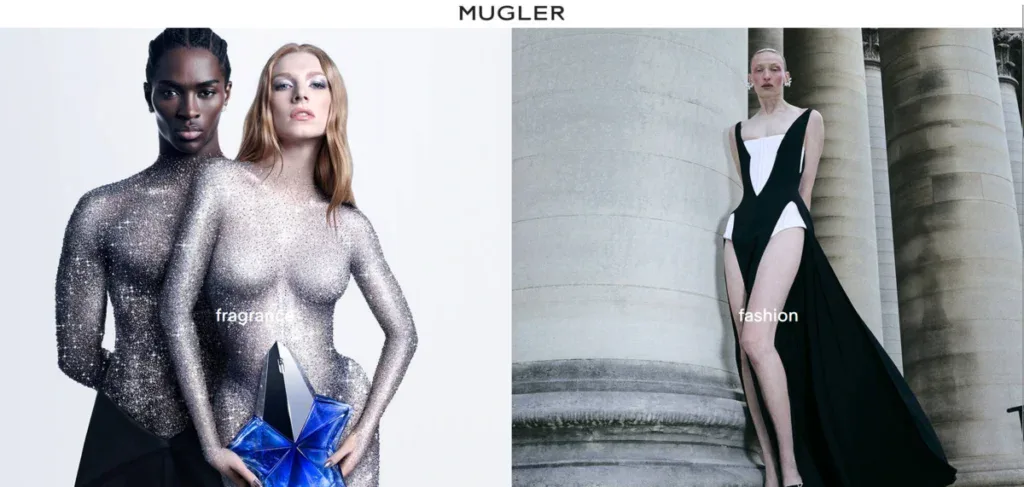
These systems boost resale value because buyers can verify authenticity with a simple scan.
AR/VR for immersive virtual boutiques
AR and VR technology change how customers experience luxury products remotely.
More than 90% of US shoppers want to use AR/VR while shopping. Rebecca Minkoff‘s 3D/AR implementation for handbags made shoppers 27% more likely to buy after trying 3D models and 65% more likely after using AR.
Apple’s Vision Pro mixed-reality headset creates new possibilities for interactive experiences. MyTheresa and other luxury brands have already adopted this technology.
Predictive analytics for bespoke product development
Custom AI trend forecasting tools look at consumer feelings, past buying habits, and global fashion trends. They then create targeted collections.
Luxury-focused AI models look at very specific segments. They predict trends for elite clientele. This is different from mass-market analysis, which relies on broad demographic data.
These systems recognize market gaps, predict future needs, and streamline production pipelines.
NYC retailers can create exactly what their customers want. This cuts down on extra inventory and boosts exclusivity.
Get a Custom Web Design For Your Luxury Brand With Blacksmith
Custom coding is the lifeblood of digital excellence for NYC’s luxury retailers who want to stand out in a crowded market. Switching from a generic website to a custom one for your luxury brand can feel overwhelming.
The project’s size and complexity add to this challenge. A new custom website could take weeks and even months to completely organize.
This is time you could use on other aspects of your luxury business, so what now?
That’s where we come in. Blacksmith is a premium NYC web design agency with a group of professional web designers ready to build the perfect website for your luxury brand.
From custom pages that flow with your own storytelling to AI-powered assistants that increase your conversion rates. We’ll ensure your luxury website performs well and stands out from the competition.
Still unsure if investing in a new custom website for your luxury brand is the right call? Don’t worry, click here to schedule a call with us and we’ll provide you with a full brand audit. This way, we can show you the areas where your current website is struggling, how it compares to your main competitors, and what we can do to help.

